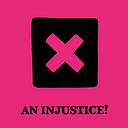Member-only story
Good News! Everyone Has Expertise About Their Own Identity
Why is this so great? Because we get to learn from others.

It’s rare for us to recognize or announce our incompetence in any matter. Often, we just “don’t know what we don’t know.” Other times, we are aware of our limitation but we are attached to our egos and beliefs.
This plays out in specific ways when it’s about our identities.
Our discourse can begin from an inner place that asks a humble question: “What don’t I know?”
Though We May Not Be ‘The Expert,’ We Have Expertise
Though relatively few people are ever formally appointed as spokespeople for their identity groups, everyone belonging to that group has a kind of relevant knowledge based on their own life experience. Everyone has a piece of the puzzle. Some people are shy about sharing their experiences because they are aware that their experiences are personal and may not be broadly representative of an “average” experience for someone in their group. They do not want to be mistaken as “experts” in the sense of someone who knows everything, communicates well, and can be given the last word. Yet they do have a type of expertise: they know what has happened to them and what it feels like to be them.
And though they may not have “moral authority” to impose upon others (of the sort that Nikki Stern rejected for herself in her book Because I Say So, recognizing that her status as a 9/11 widow did not make her an expert on foreign policy), nevertheless they do have some authority about the facts of their lives and the way they have interpreted those facts.
Deferring to Someone With Direct Experience
In 2013, Matt Bruenig blogged about “identitarian deference”: It’s the principle that “privileged individuals should defer to the opinions and views of oppressed individuals, especially on topics relevant to those individuals’ oppression.” Understood in its best light, it’s the recognition of an opportunity to learn something from everyone we speak to, especially insofar as their lives have differed from our own. We don’t need to immediately or even ultimately defer to the political agenda of anyone…

